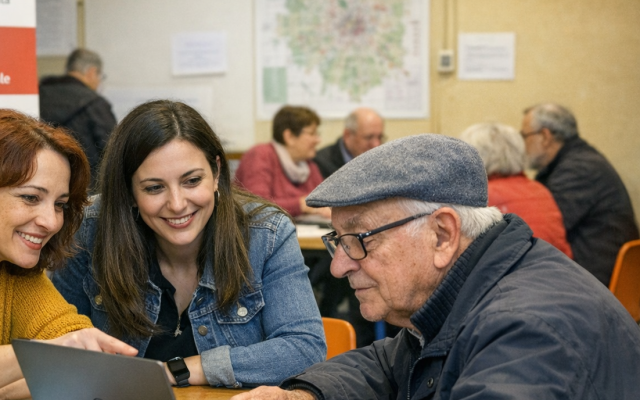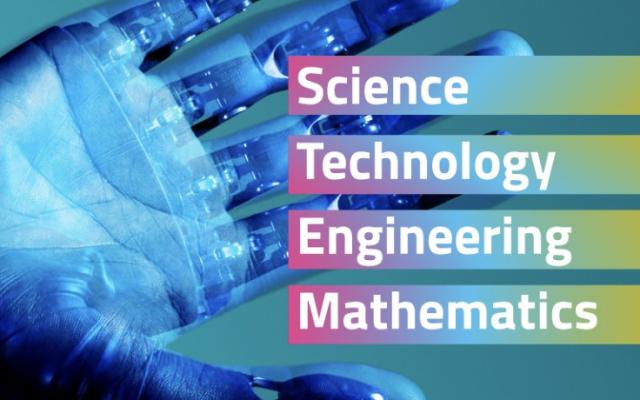We are involving teachers in an important project on innovative didactics to promote their role as agents of pedagogic and social change. We intend to develop courses that will leverage the use of digital solutions to transform learning into an exciting and transformative experience capable of driving the knowledge, competences and values central to Life Education.
“Over 120 teachers replied enthusiastically to our call in September [see news: Call for Teachers] to transform school together. We have formed 28 national groups of teachers from primary and secondary schools in all Italian regions and from adult education centres. We have explore new routes for distance learning and to maintain firm bonds with them through digital devices,” explains Researcher Ilaria Gaudiello, who is coordinating the work of the Network of teachers for the Fondazione Mondo Digitale.
“Some have begun to work together in October, while others have met more recently to brainstorm. The results of the teamwork will produce interesting courses that once completed will provide useful resources accessible to everyone.”
Who are the teachers participating in the "Our School" Project? It’s now time to share the faces and stories with you! Starting today, we will start a new weekly “column” dedicated to “i-Teachers, Teachers for Inclusion,” working every day to make sure no one is left behind.
Today, we will present Maria Chiara Esposito, Professor of English, who is specialised in Interaction Sociolinguistics through Media, with a short interview and video produced by Ilaria Gaudiello.
 Maria Chiara Esposito teaches English at first and second-degree secondary schools, after receiving a degree with a top grade in Modern Languages for International Communication and Cooperation. She has language certifications from Cambridge and Dele, a first-level mastercourse certification in Italian L2, one in flipped didactics and CLIL, and a second-level mastercourse in distance learning methodologies. She loves technology and attended a course on "Teaching English with
Technology" thanks to the Erasmus+ Programme for teachers. Moreover, she has Lim, Tablet, Pekit and ECDL certifications. She attends Oxford Updating Seminars on language pedagogy and technology. She is specialised in studies on Interaction Sociolinguistics through Media. She teaches "Web 2.0" at the Naples “Suor Orsola Benincasa” University. She is part of a network of teachers as a tester and inventor of innovative courses and is currently working on a column in a foreign language on the objectives of the Agenda 2030 to develop the communicative skills of students.
Maria Chiara Esposito teaches English at first and second-degree secondary schools, after receiving a degree with a top grade in Modern Languages for International Communication and Cooperation. She has language certifications from Cambridge and Dele, a first-level mastercourse certification in Italian L2, one in flipped didactics and CLIL, and a second-level mastercourse in distance learning methodologies. She loves technology and attended a course on "Teaching English with
Technology" thanks to the Erasmus+ Programme for teachers. Moreover, she has Lim, Tablet, Pekit and ECDL certifications. She attends Oxford Updating Seminars on language pedagogy and technology. She is specialised in studies on Interaction Sociolinguistics through Media. She teaches "Web 2.0" at the Naples “Suor Orsola Benincasa” University. She is part of a network of teachers as a tester and inventor of innovative courses and is currently working on a column in a foreign language on the objectives of the Agenda 2030 to develop the communicative skills of students.

INTERVIEW
Maria Chiara, your professional and educational career is witness to a solid commitment to continue updating your knowledge and competences. How do digital devices help you in this?
I do not consider digital devices as a support tool, but rather as an essential working tool, especially to teach a subject like English that varies widely be definition. Teachers should stay abreast of the times not only to bridge the digital divide that forms with new generations of students, but especially to update their own cultural and linguistic wealth. Globalisation has allowed us to come into contact with an ever-increasing range of tools. We must understand how to select and produce didactic activities that develop the competences that students need to become citizens of the future and orient themselves in the melting pot of information that we are exposed to each day.
What aspects of English do you like teaching the most?
English is easy to teach. Language is life, culture and interaction. I like to make my lessons interesting and drive my students to reflect on language. I often overlook textbooks and turn to on-line videos or the homepages of foreign websites. I have seen to many unmotivated students when it comes to studying languages, because they see no immediate goal to it. However, as I love media, I often linger on linguistic variations. While such issues were formerly accounted for especially on a diatopic level, based on a geographical outlook, today, we are experiencing a true revolution. In class, we analyse translanguaging practices. Students in the first two years of high school watch the BBC 1 Minute News every week to listen to material that has not been edited for teaching. Then, in the last three years, students study the language of politicians, ancient society (through the classics included in the literature programme) and contemporary language (songs and media). We analyse the words, which often underlie specific socio-political realities and linguistic or matter-of-fact inequalities. Recently, we have examined the communications used during the American elections on Twitter and the information material produced for the Covid-19 emergency in English-language countries.
You are working on a course based on journalists’ columns for the network to encourage students to discuss crucial issues on the 2030 Agenda, a true manual on sustainability for everyone. Can you provide us with any previews on your work?
The objective is to move away from mere grammatical content that is already ubiquitous at school and not very exciting to concentrate on one of the major issues of Italian students: speaking. Indeed, linguistic methodology has evolved over the years; even textbooks now give more space to communications and less to grammar. Students in Italy are amongst the worst speakers of foreign languages in Europe. This is due to the quantity of grammar that they are forced to study, their fear of making mistakes and the excess tendency to correct them which blocks a more natural use of a language as a tool for communication. This is why we want our students to be more courageous. We are preparing interactive presentation and gamification activities to reinforce vocabulary and using digital applications for recording and editing to allow them to address the issues as they prefer. This is the Learning by Doing approach. Students are encouraged to understand the objectives of the 2030 Agenda and broaden their knowledge, by looking for news related to discussed issues, steering clear of fake news, and producing short reports. Besides consolidating the skills described in the programmes, they will also study linguistic variation across means of communication.
What do you expect in the future for the Network of teachers?
The Network of teachers is fundamental to exchange ideas and good practices. I hope the project continues and allowed motivated and competent teachers to continue collaborating.




